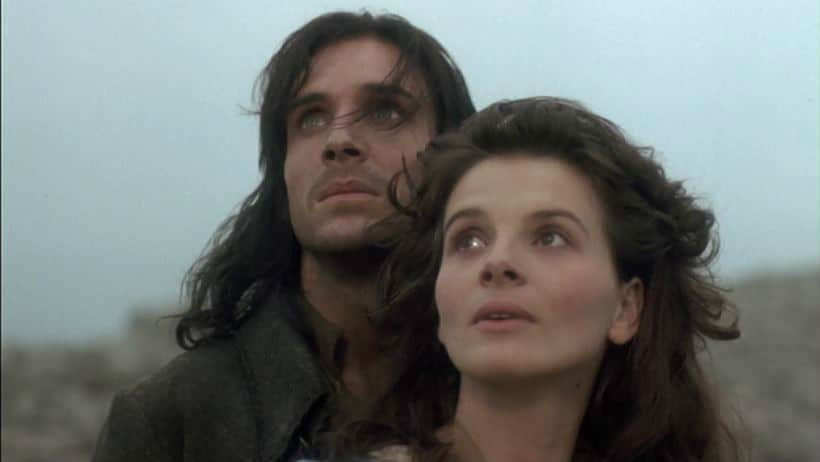
AS Emma Rice’s adaptation of Emily Brontë’sWuthering Heights heads to York Theatre Royal from November 2, Steve Pratt considers the reaction to the original novel and previous incarnations of the story.
Bell, book and Brontë
EMILY Brontë’s only novel Wuthering Heights was published in 1847 under the pseudonym Ellis Bell. Wuthering Heights and Anne Brontë’s Agnes Grey were accepted by publisher Thomas Newby before the success of their sister Charlotte’s novel Jane Eyre.
It was described by reviewers as both “a disagreeable story” and “a strange book”. Another thought the faults of Charlotte Brontë’s Jane Eyre were “magnified a thousand-fold”, adding that “the only consolation which we have in reflecting upon it is that it will never be generally read”.
Another critic noted: “It is not without evidences of considerable power: but, as a whole, it is wild, confused, disjointed, and improbable; and the people who make up the drama, which is tragic enough in its consequences, are savages ruder than those who lived before the days of Homer.”
Praise was in short supply. “We rise from the perusal of Wuthering Heightsas if we had come fresh from a pest-house. Read Jane Eyreis our advice, but burn Wuthering Heights,” suggested one critic.
The writer in United States’ publication Graham’s Lady’s Magazine was clearly no fan: “How a human being could have attempted such a book as the present without committing suicide before he had finished a dozen chapters, is a mystery. It is a compound of vulgar depravity and unnatural horrors…”

Heath-Cliff Richard
HEATHCLIFF, a musical conceived by and starring Cliff Richard, centred on the character of – yes, you’ve guessed it – Heathcliff. Some imagined that dark and brooding Heathcliff was outside clean-cut pop star Cliff’s acting range. Song lyrics were by Tim Rice, no less. The musical’s book was not by Ms Brontë but Cliff and theatre director Frank Dunlop.
A studio album with ten songs from the show, including duets with now-Dame Olivia Newton-John, was released in 1995 with the stage version premiering the following year in London. Ticket sales broke box office records although critics were less enthusiastic than Cliff’s fans.
Moors the merrier
IN 1939, MGM turned the book into a movie, recreating the Yorkshire Moors on a California ranch and in a Hollywood film studio. Laurence Olivier and Merle Oberon starred. A “very poor” adaptation, thought one critic, adding: “The accuracy is dreadful, the characters are almost unrecognisable and the setting a century and a half out. Enjoy it as a romance but, if you watch as a portrayal of the book, you will be disappointed.”
Oscar-nominated as best picture, the film lost out to Gone With The Wind.

Beating about the Bush
WUTHERING Heights was Kate Bush’s debut single in 1977, written when she was 17. It became the first UK number one written and performed by a female artist.
Kiss me Hardy
THE 2009 ITV adaptation of Wuthering Heights starred Charlotte Riley and Tom Hardy, who became a couple in real life once the cameras stopped turning. Their romance had a happier ending than Cathy and Heathcliff’s – they are now married with children.
Throbbing passion
JANET McTeer, the award-winning actor who worked in the York Theatre Royal coffee bar as a student, not only appeared in the 1992 Wuthering Heights film as Ellen Dean but also read the audio book.
A reviewer considered her performance brought the book fully to life, adding, “McTeer’s sections throb with the passions appropriate to this classic.”
O-O-Brontë
THE forgotten James Bond – hands up those who remember Timothy Dalton played 007 in three movies – was shaken and stirred by Cathy when he played Heathcliff in the 1970 film. Producer Louis Heyward declared this would be more like the book than the first American version (not difficult), saying “Hollywood now goes in for the truth. Heathcliff was a bastard and Cathy a real bitch and that’s how they’ll be in this film”.
A sequel, Return to Wuthering Heights, was threatened but happily never materialised.

‘Allo, ‘Allo, Eeethcleef
THE 1992 film version was shot on Yorkshire locations with Ralph Fiennes as Heathcliff and French actress Juliette Binoche as Cathy. The scenery was authentic but critics worried about the French actress’s faltering English accent, not to mention seeing an uncredited Sinead O’Connor narrating the story as Emily Brontë herself.
Effing Heights
A BBC Radio 3 adaptation put the f-word into the mouths of Cathy and Heathcliff to “capture the shock” that greeted the publication of the book (which had words crossed out in the original text because they were considered too strong).
Writer Jonathan Holloway declared: “What I wanted to elbow out is this idea that it’s the cosy greatest love story ever told – it’s not. For me Wuthering Heights is a story of violent obsession, and a tortuous unfulfilled relationship. This is not a Vaseline-lensed experience.”
Gone with the Howling Wind
HURLEVENT – which translates as Howling Wind – was a 1985 French film adaptation of the first part of the novel, set in 1930s’ Southern France. Other adaptations have moved the story to Catholic Mexico, a California high school and medieval Japan. The book has also been an opera and a graphic novel.
Withering Looks
LIP Service, alias comedy duo Sue Ryding and York’s Maggie Fox, continue to perform their award-winning Brontë spoof Withering Looks on stages up and down the land. The show is described as “an authentic look at the lives and works of the Brontë sisters – well, two of them actually as Anne has just popped out for a cup of sugar”.
Wise Children’s Wuthering Heights, a York Theatre Royal, National Theatre and Bristol Old Vic co-production with Emma Rice’s Wise Children, runs at York Theatre Royal from November 2 to 9. Box office: 01904 623568.
